Easy Beet Kvass
This easy beet kvass recipe is a tonic no one should be without. Easy to make with just three ingredients and no fuss, a little goes a long way to purging, cleansing and nourishing the body.
Jump to Recipe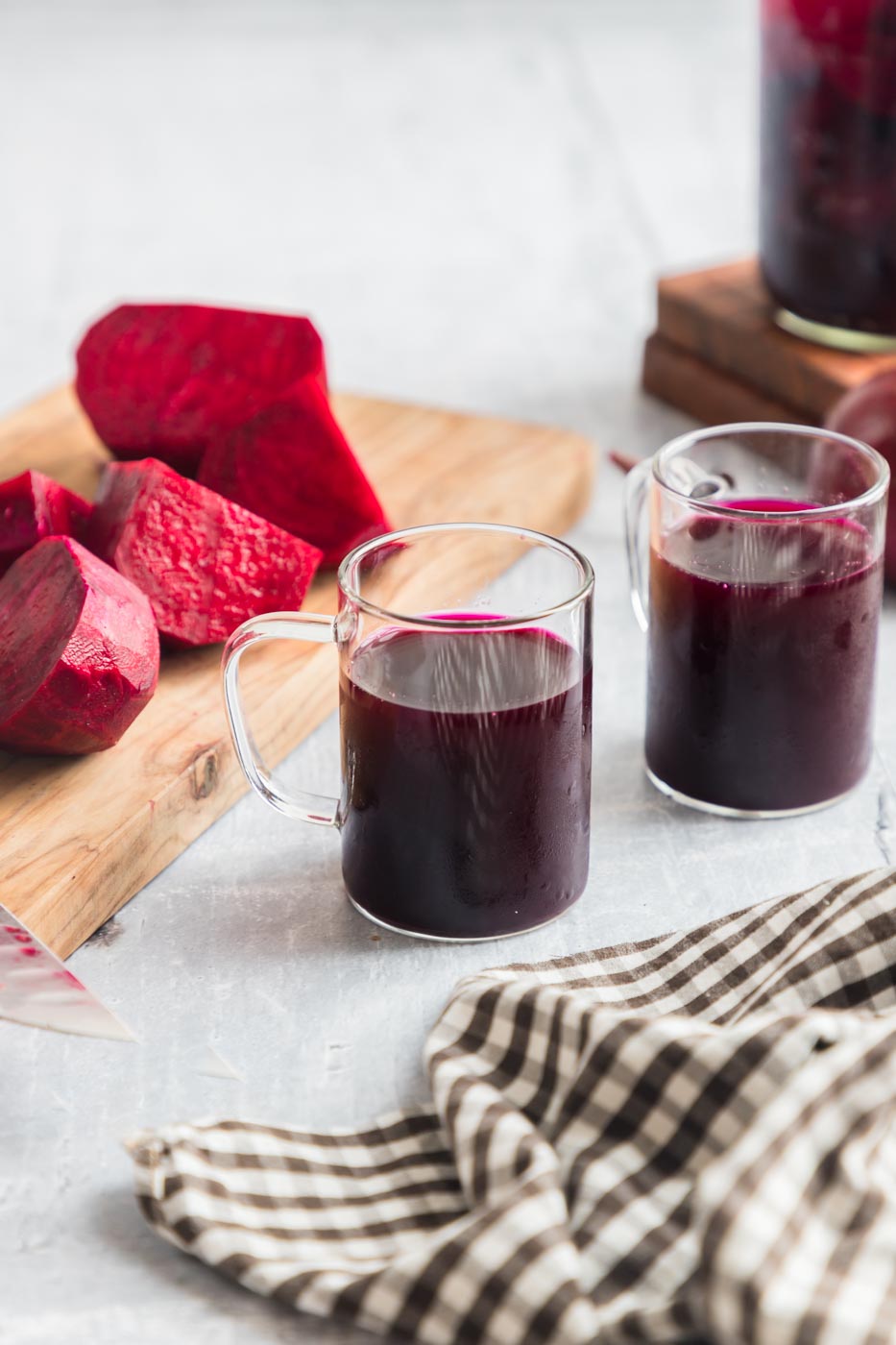
What is beet kvass?
Beet Kvass is a fermented beverage originating from Eastern Europe and made from beets, water, and sea salt.
The lacto-fermentation process provides a ton of health benefits including a big ol’ boost of probiotics that promote good digestion and a glorious influx of cleansing properties and antioxidants that can support the body from head to toe.
Where did it get its name?
The word, “kvass” is derived from the Russian word meaning “acidic” or “sour”…an appropriate name for the beverage based on its flavor profile. We’ll get to that in a minute.
Fermented foods: why are they so powerful and what makes them good for you?
Fermented foods can be a powerful tool for those looking to boost immunity and overall health. The probiotics and certain bioactive compounds inherent in fermented products help support and balance the gut microbiome, allowing for easier digestion, bowel regularity, better absorption of nutrients, and even improved mood due to the gut-brain connection.
They have anti-inflammatory properties and are useful in preventing the overgrowth of many fungi and bacteria that can lead to illness.
Fermented foods promote blood flow to the brain and heart, help our bodies detoxify, and even improve neuroplasticity.
The health benefits of beet kvass
Let’s break down some of the ways in which beet kvass can benefit our physical AND mental health, system by system.
Brain health and longevity
Beet Kvass works wonders in the brain, promoting neuroplasticity as well as blood flow, encouraging the brain to stay healthy.
Kvass can support the brain’s ability to continuously make new neural connections as well as to maintain and repair existing ones.
Nervous system/nerve endings
Beetroot, a key ingredient in beet kvass, is high in potassium which is an electrolyte that plays a crucial role in nerve function and communication. It helps nerves fire properly when stimulated, allowing signals to be passed between brain cells as well as to the rest of the body.
These signals enable our body to react to our brain’s commands and our brain to react to external stimuli sensed by our bodies.
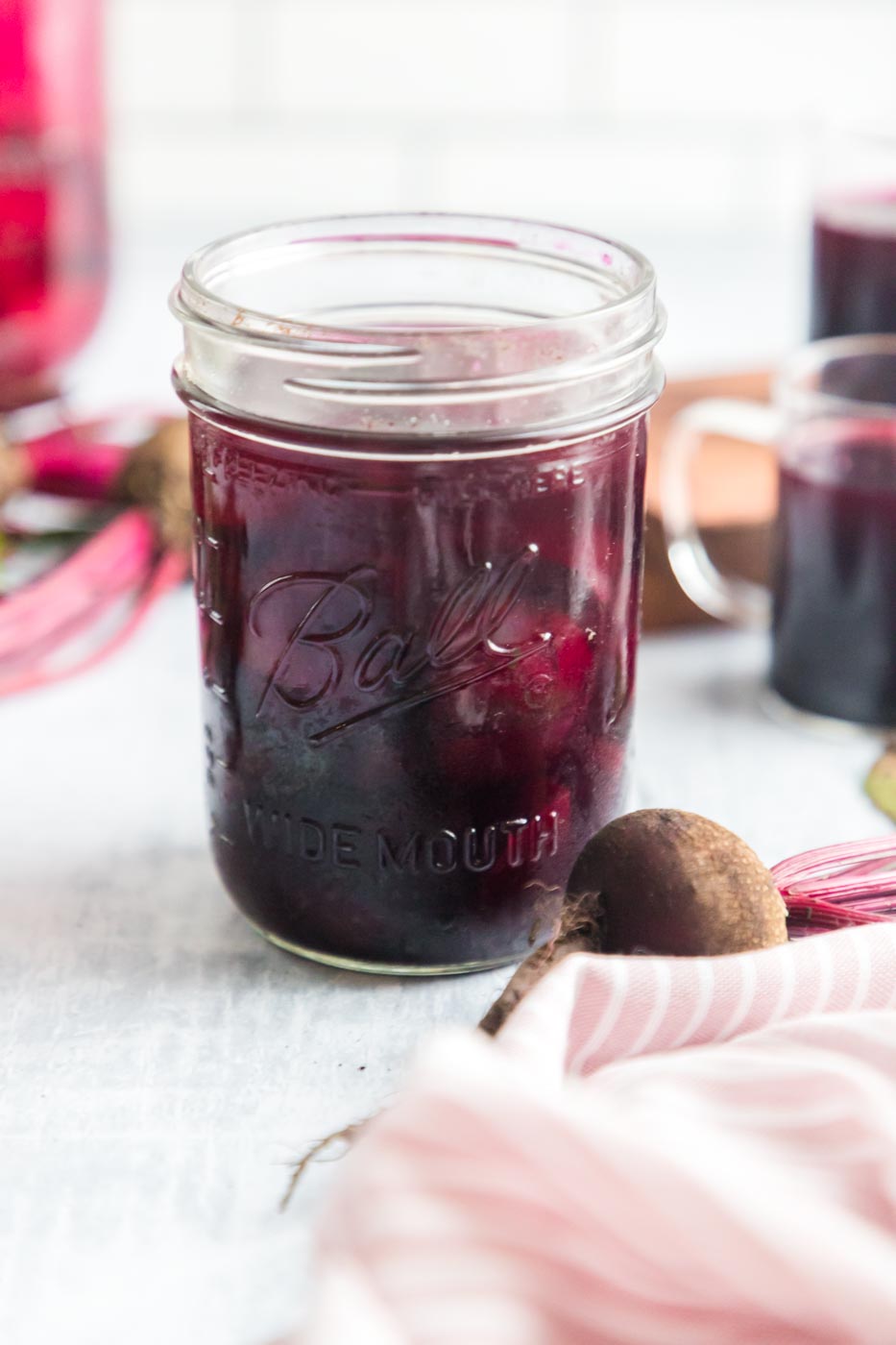
Liver cleansing
Beet Kvass contains betalains and betaine: Nutrients that work to cleanse the liver, relieving it of stress caused by toxins and inflammation.
Gallbladder health
Beet Kvass can also help cleanse the gallbladder, improving bile flow and leading to overall better digestion of fatty foods and may reduce gallstone formation.
Digestion/stomach acid production
The probiotics inherent in beet kvass make it highly beneficial for digestion, encouraging your body to absorb valuable nutrients and to expel what it does not need. Kvass also aids in stomach acid production, allowing the body to break down food properly for better absorption of nutrients.
Vitamins, minerals, and probiotics found in beet kvass
So what’s in this beet concoction that supercharges our health? Most commonly, people are aware of the kick of probiotics and digestive enzymes that beet kvass delivers, but it is chock-full of other goodies:
- Vitamins, specifically vitamin C and a few B vitamins, such as folate
- Antioxidants and phytonutrients that can be useful in cleansing our body systems
- Minerals such as iron, magnesium, manganese, calcium, and potassium
Choosing ingredients for kvass
This is a relatively simple recipe that utilizes a few basic ingredients; organic beets, Celtic sea salt, and filtered spring water. This is a tonic meant for healing, so choose your ingredients wisely! Use quality, filtered water, as opposed to tap and splurge on those organic beets, as opposed to using conventional.
How to make beet kvass
Use 1 very large or 2 medium organic or home grown beets. If you don’t have organic, make sure to peel your beets. Remove any remaining stalk, and chunk the beets into pieces. The size doesn’t matter too much.
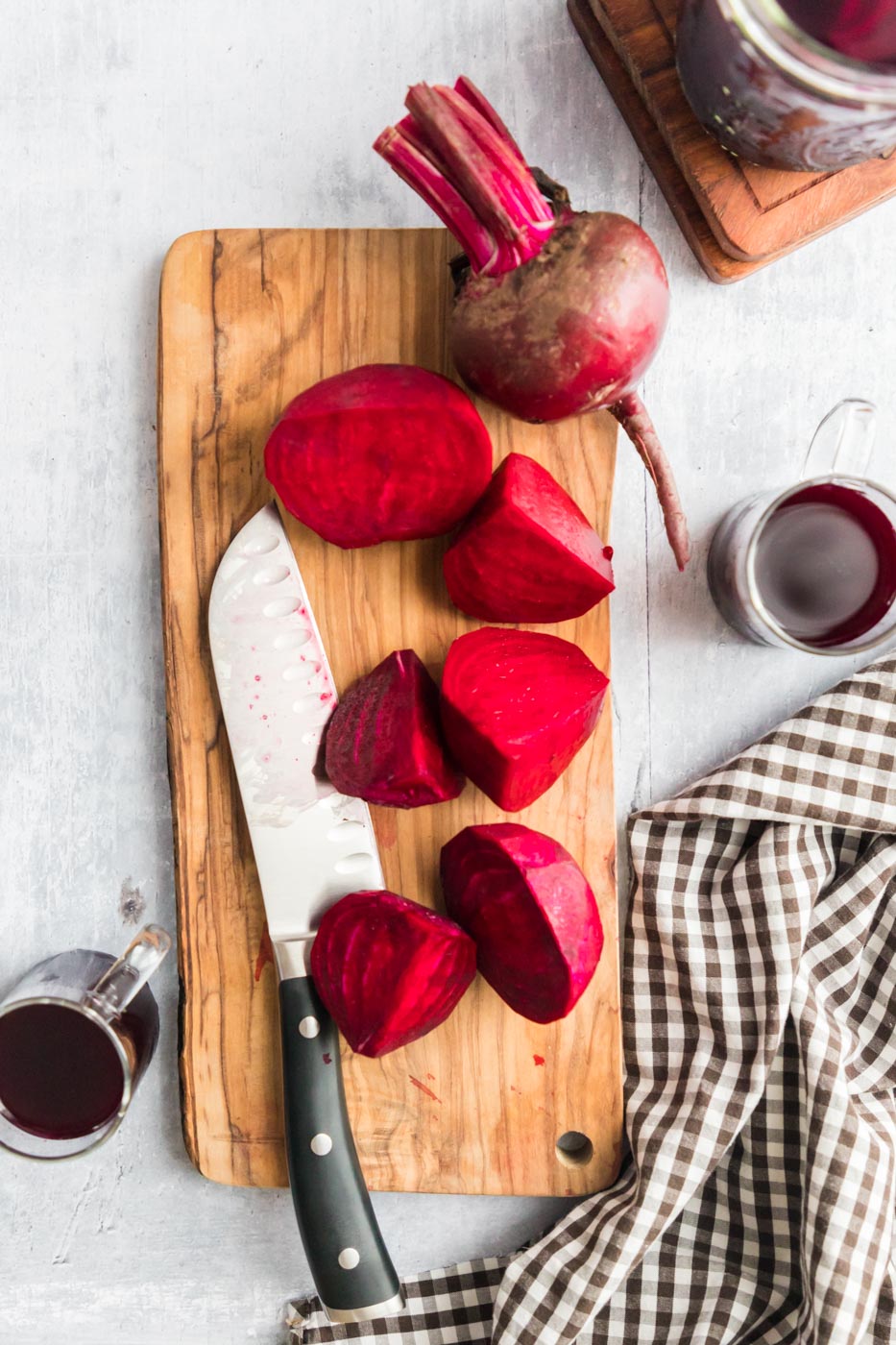
Add filtered water to a half gallon glass jar. Don’t use plastic containers for this process. Add the beet chunks.
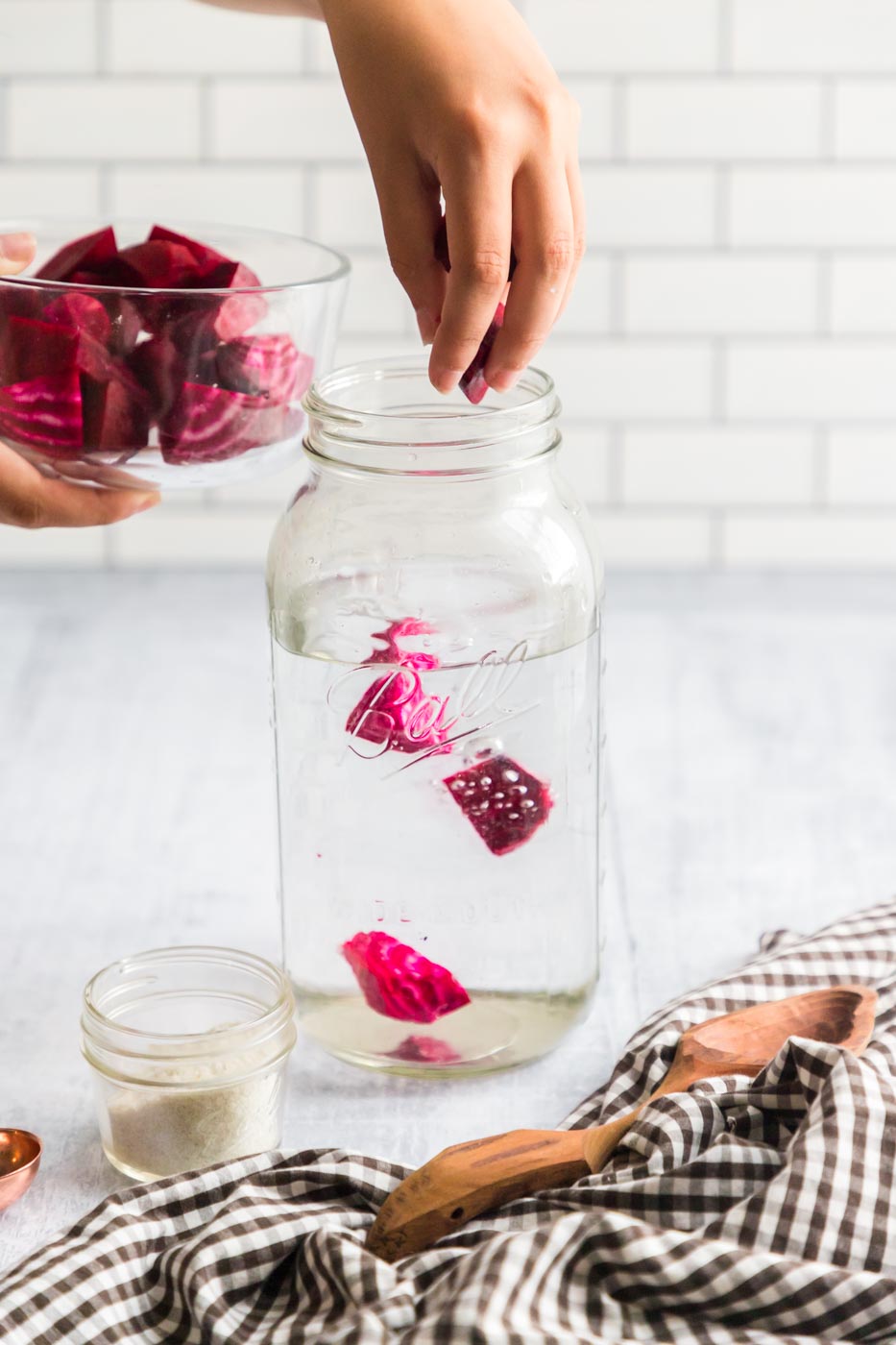
Add 1 tablespoon Celtic sea salt. Don’t use table salt here–it will be too salty and it also leaves out key minerals found in sea salt.
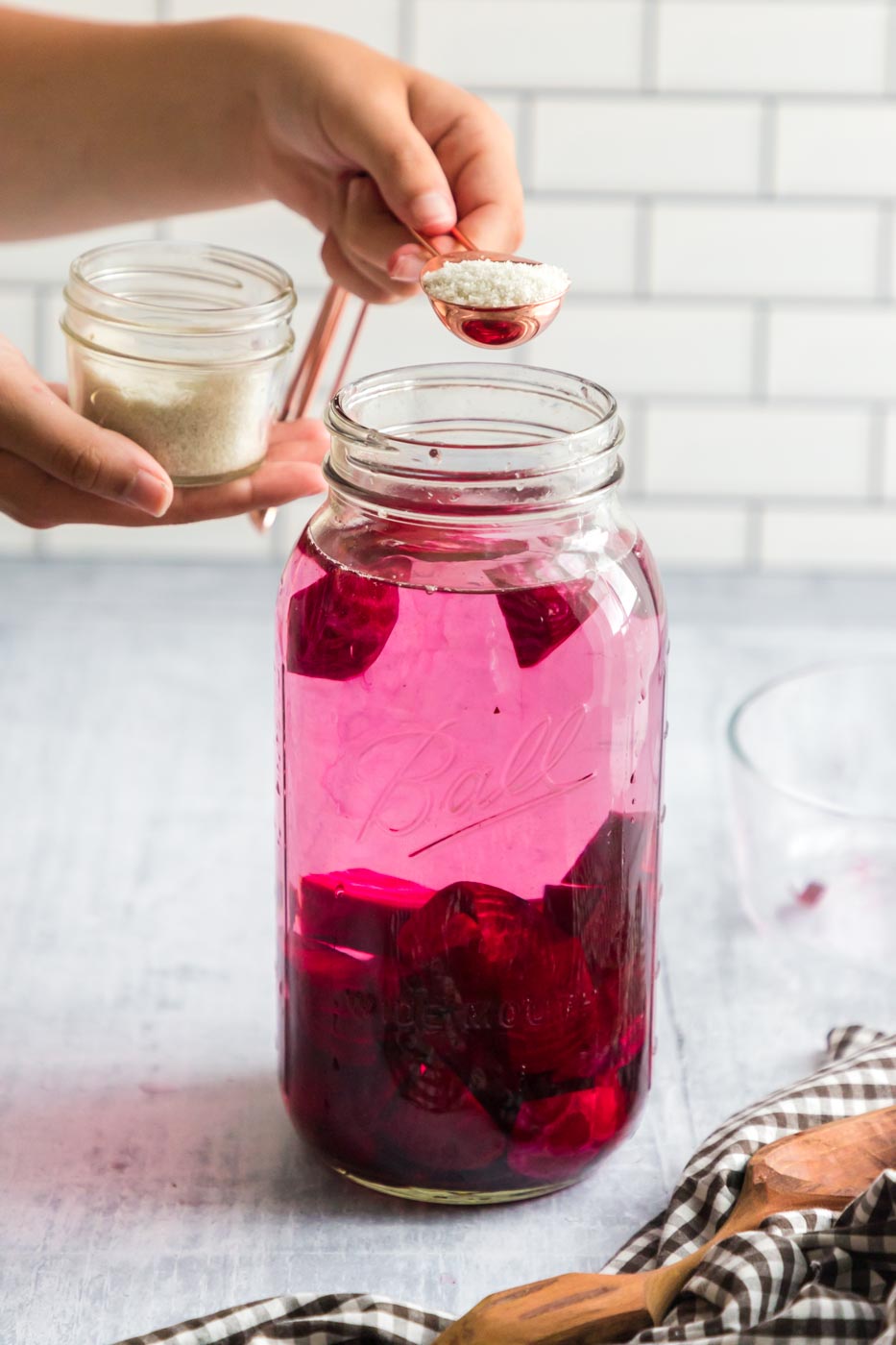
Stir to combine and then loosely cover the mixture with a paper towel and rubber band. Leave it at room temperature (70-80 degrees) for 5 days. Then store in the fridge and use within 2 weeks.
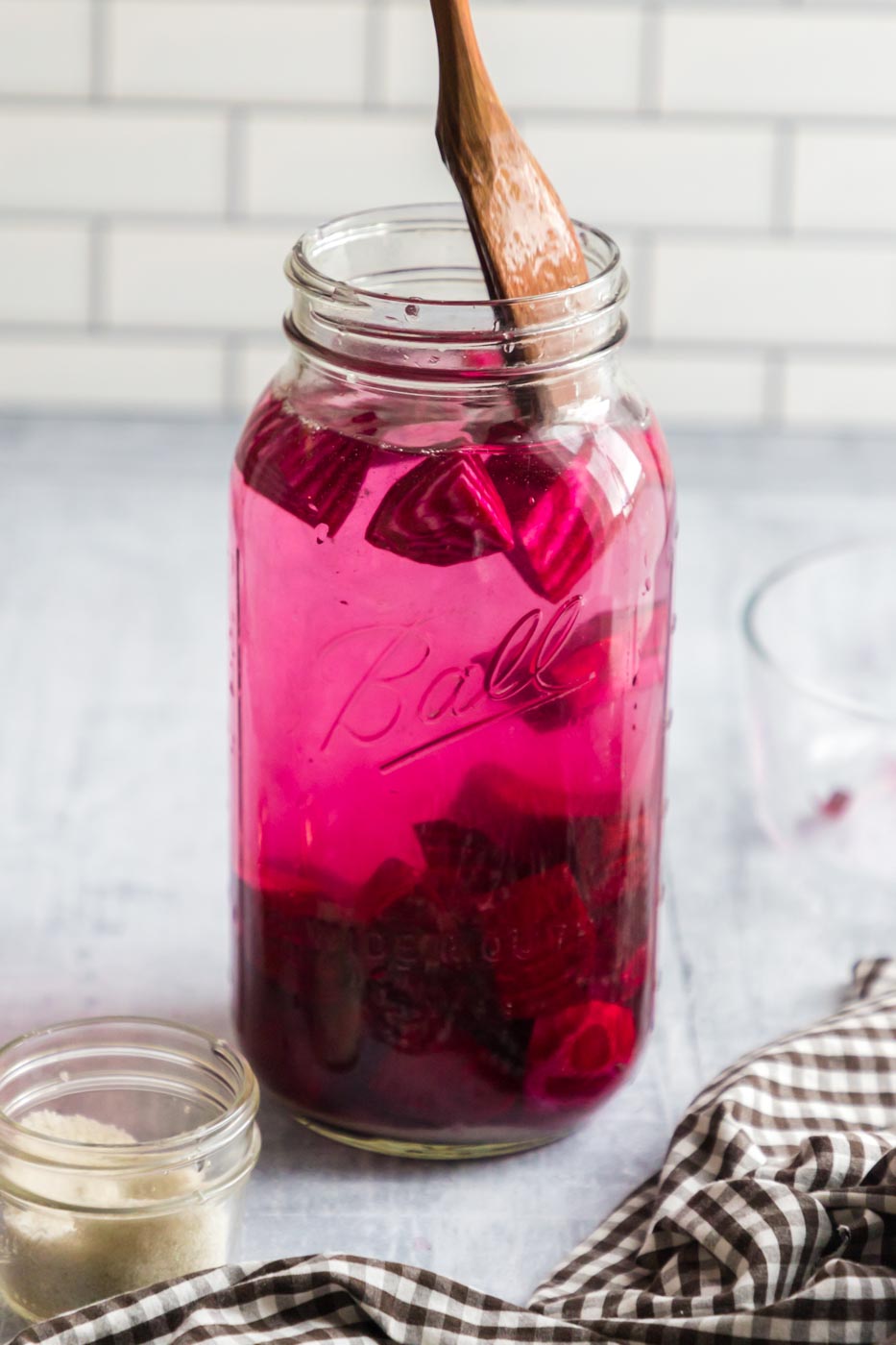
How to know when your kvass is ready and how long to store it in the fridge
After preparing the beet kvass, you’ll need to let it to sit at room temperature with a loose cover like a paper towel secured with a rubber band, for 5 days. This allows for the fermentation process to take place.
After 5 days, you can store your kvass in the refrigerator for up to 2 weeks. No need to remove the beets. They’re happy in there!
How much to drink, when, and how often
As with any new routine, it’s good to ease yourself in. We recommend starting with 2 oz daily and working up to wherever you feel comfortable (up to 8 oz).
It is important to take your kvass on an empty stomach so that it has the best chance at working its magic, so take it first thing in the morning.
Kvass DOES have a strong flavor but try to take it full strength.
How does it taste?
Let’s be totally honest…beet kvass tastes, well, less than pleasant to many. We are not taking this tincture for its yumminess, though. We are taking it for its health benefits.
Remember all the times your mom or doctor made you take cough syrup? Mary Poppins said, “Just a spoonful of sugar helps the medicine go down”…and while we don’t recommend refined sugar, if you need to chase your kvass with something tasty, feel free! Try a dollop of honey or a swig of pure pomegranate juice.
Where to buy kvass if you can’t make it
If you do not have the time or energy to make it yourself, there are some awesome online and in-person marketplaces that sell beet kvass. Here are some of our recommendations:
- Pick Up The Beet Juice from Amazon
- Iggy’s Beet Kvass…they have an Original AND a Ginger flavor, if you are looking for an extra kick
- Gap Homestead
Many local health food stores such as Wholefoods, Sprouts Farmers Market, Staff of Life, etc. will carry beet kvass. If you have trouble finding it just ask.
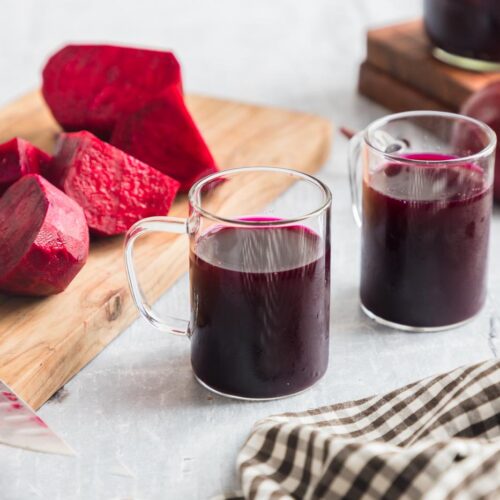
Beet Kvass
Ingredients
- 2 cups peeled organic beets (1 large or 2 medium beets) cut into large chunks
- 1 tbsp celtic sea salt
- 1/2 gal filtered water
Instructions
- Peel and chunk 1 large or 2 medium beets into roughly 1 inch pieces and add them to a half gallon or larger jar.
- Cover with 1/2 gallon filtered water.
- Add 1 tablespoon sea salt and stir to combine.
- Cover with a paper towel secured with a rubber band or a lit that sits ajar and let the mixture stand at room temperature (70-80 degrees) for 3 to 5 days.
- Refrigerate for up to two weeks, drinking your desired amount each morning on an empty stomach.
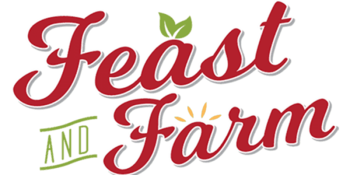
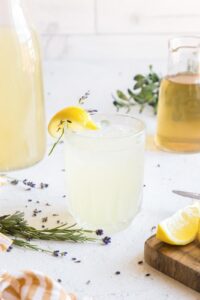
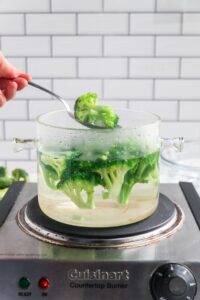

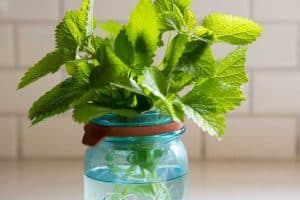
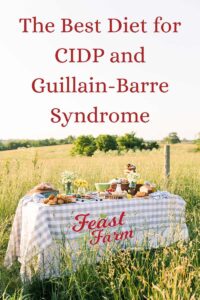
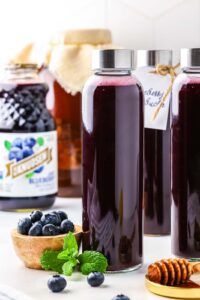

Cool recipe. Interesting taste, for anyone looking to try something new this summer!
Oh it’s definitely an interesting taste! LOL. It’s good for ‘ya though! –Rachel